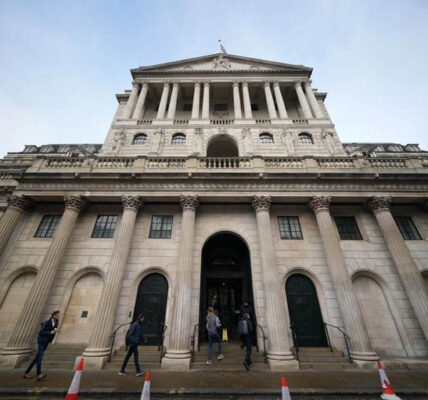Discover how the Retirement Tax is affecting pensioners in the UK, as more retirees find themselves paying income tax on their state pensions due to fiscal policies. Understand the implications and ongoing debates surrounding this issue.

© GB News
Retirement Tax: How It’s Impacting UK Pensioners
In the UK, a growing number of retirees are facing the reality of paying income tax on their state pensions, a phenomenon driven by fiscal policies that freeze tax thresholds while pensions increase. This trend, known as “fiscal drag,” has significant implications for older adults relying primarily on their state pension for income.
The Rising Numbers
Recent data from HM Revenue and Customs (HMRC) highlights a concerning trend: over 8.5 million pensioners now pay income tax on their retirement payments, marking an increase of 660,000 from previous figures. This rise is attributed to frozen tax thresholds combined with annual increases in state pension amounts under the triple lock mechanism.
Understanding Fiscal Drag
“Fiscal drag” occurs when tax thresholds, the income levels at which tax rates change, remain static despite rising incomes. As state pensions increase annually—thanks to the triple lock guaranteeing rises in line with inflation, earnings, or a minimum of 2.5%—more pensioners are pushed into higher tax brackets without corresponding adjustments to tax-free allowances.
Debunking Misconceptions
Prime Minister Rishi Sunak recently raised concerns about a potential “retirement tax” under a Labour government, but fact-checkers have dismissed this claim. The reality is that many pensioners already face income tax on their state pensions due to existing policies, irrespective of political affiliations.
The Impact on Pensioners
For many retirees, especially those with lower incomes reliant solely on the state pension, the prospect of paying income tax represents a significant financial burden. This group, often vulnerable due to limited additional income sources, finds their purchasing power reduced as more of their pension is withheld by HMRC.
Policy Proposals and Their Impact
In response to public outcry and ahead of upcoming elections, political parties have proposed various solutions. The Conservative Party has floated a “triple lock plus” initiative, aiming to align tax-free allowances with the triple lock increases. However, experts suggest this may provide marginal financial relief, estimated at approximately £28 per month, for affected pensioners.
Expert Insights
Former pensions minister Sir Steve Webb underscores the long-term nature of this issue, noting a persistent upward trend in the number of pensioners paying income tax since 2010. He emphasizes that being an income taxpayer in retirement has become increasingly common, reflecting broader economic and fiscal policy shifts.
Looking Ahead
As the political landscape evolves and election promises are made, the future of tax policies affecting pensioners remains uncertain. Labour has not committed to reversing the freeze on tax thresholds, leaving many retirees anxious about their financial stability in the years to come.
Public Perception and Response
The issue has sparked debate among voters, with concerns raised about fairness and the economic well-being of older adults. Many pensioners and advocacy groups argue for reforms that protect retirement incomes and ensure tax policies reflect the financial realities faced by retirees.
The Role of Advocacy
Advocacy groups continue to press for reforms that address the unique challenges of pensioners, including the impact of fiscal drag on retirement incomes. Their efforts aim to influence policy decisions that safeguard the economic security of older adults, particularly those most vulnerable to income tax on state pensions.
Conclusion
The “Retirement Tax” issue affecting UK pensioners underscores the complex interplay between fiscal policy, retirement income, and political rhetoric. As more retirees find themselves subject to income tax on their state pensions, the debate intensifies over fairness, economic stability, and the future of retirement finances in the UK.
ALSO READ:
“Interest Rates: 5 Surprisingly Positive Moves to Boost Your Finances”



